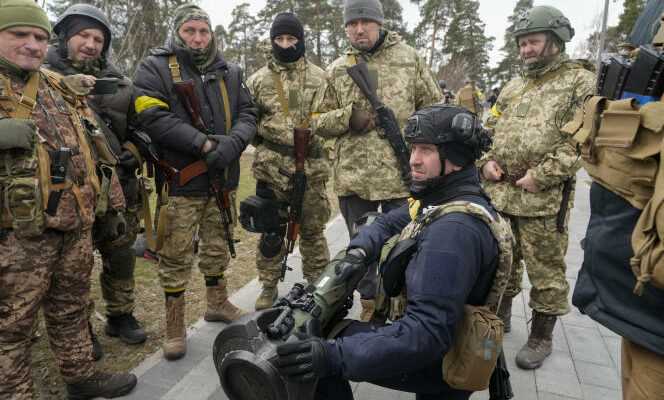The war in Ukraine is of rare clarity. The identity of the aggressor – Russia – cannot be disputed, nor can the lack of any credible humanitarian or security justification for its destructive enterprise. On the other hand, the fog sets in when it comes to assessing the nature of the intervention of the allies in favor of Ukraine. There are principles and their interpretation, law and morality. There are also the red lines that are drawn in public and the vagueness maintained in their implementation.
“Our forces are not and will not be engaged in the conflict with Russia in Ukraine”, repeated Joe Biden on February 24. “We are not at war with Russia”, said Emmanuel Macron on March 2. Speaking the day before before the Senate, the Minister for the Armed Forces, Florence Parly, had explained that a “Direct engagement of our forces or those of our allies to support the Ukrainian army against Russia is not an option. It would make us co-belligerents in this conflict”.
On the military level, the crest line on which the allies are advancing was taking shape even before the start of the war initiated by the Kremlin. It sums up like this. Direct military involvement in Ukraine, against Russia, is excluded. The risks of a large-scale conflict, spilling over into the territory of NATO countries, are too serious. It is therefore a question of containing the fighting on Ukrainian soil, without abandoning its population to its disastrous fate. Deliveries of so-called “defensive” weapons were therefore organised, in large quantities, to delay the advance of the Russian troops as much as possible, contest control of the airspace, compromise their morale, disorient their staff.
Ukraine’s legitimate right to defend itself
On the issue of arms deliveries, international law is quite clear. A country is not considered belligerent as long as it sticks to sending equipment or funding. The same goes for the formation or training of armed groups. On the other hand, when a country coordinates these forces, even from a distance, or plans combat operations, it becomes ” a part “ to the conflict, according to the established legal formula.
Several historical precedents have led Westerners to choose this ridge line. In 1999, faced with fears of ethnic cleansing against Albanians in Kosovo, NATO had chosen to bomb Serbian targets without a UN mandate. A decision denounced tirelessly, since, by Moscow. The intervention of the Atlantic Alliance in Libya in 2011, which contributed to the fall of Muammar Gaddafi, was made under a UN mandate. But the principle of “responsibility to protect”invoked at the time, cannot be invoked this time for an obvious reason: the blocking of Russia as a permanent member of the Security Council.
You have 71.93% of this article left to read. The following is for subscribers only.
